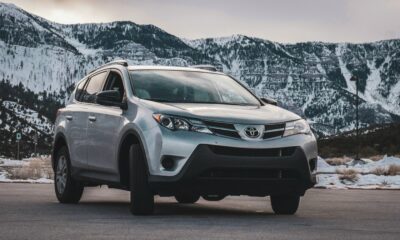Motoring
Toyota Tops the Charts as South African Women Reshape Car Buying trends

South African women are steering the car market in a new direction
It’s not just about getting from A to B anymore. South African women are reshaping the country’s car market, and their choices are shifting long-held industry norms. For the first time, Toyota has overtaken Volkswagen as the most popular brand among female new-car buyers, according to new research from Lightstone.
This change didn’t happen overnight. Just a few years ago, Toyota sat behind VW and even Ford in popularity among women. Now, it’s sitting firmly in pole position, while Suzuki has sped into third place after only breaking into the top five in 2022. Ford, once the leader in 2017, has slipped to fourth, while Nissan rounds out the list in fifth.
SUVs are the new favourite ride
Across the board, SUVs and crossovers have become the top choice for women — accounting for more than half of all new car purchases. The rise of these high-riders has been dramatic, overtaking hatchbacks in 2021. Hatchbacks now hold less than a 30% share, while sedans have almost vanished from the conversation.
Interestingly, even double cab bakkies have edged ahead of sedans, although they still only make up a small slice of female purchases. Compact bakkies and MPVs remain niche choices.
Value, safety and lifestyle drive decisions
While some men still buy with performance and status in mind, women are focusing on what works for their everyday lives. WesBank’s marketing head, Lebo Gaoaketse, told Hot FM that “women, in particular, are looking for value: vehicles that fit their lifestyles, budgets, and expectations for safety and quality.”
Research from WeBuyCars echoes this. Chief marketing officer Rikus Blomerus notes that women are more likely than men to choose hatchbacks and SUVs, pointing to a stronger focus on practicality, space and safety.
More women than ever are buying cars
The numbers tell a bigger story. Women now make up 39% of all financed car purchases in South Africa, up from 32% just ten years ago. That’s a significant shift in a traditionally male-dominated market.
Lightstone’s data also reveals that women prefer linked interest rate finance — with a striking 80% opting for it in 2025. And the price tag has climbed over the years: the average financed car bought by a woman in 2024 cost around R440,000, compared to R250,000 a decade earlier.
A sign of growing independence
These aren’t just buying trends — they’re a reflection of bigger social changes. Women in South Africa already lead in homeownership, and their growing presence in the car market signals rising socio-economic independence.
From SUVs that suit busy family lives to Toyota’s reputation for reliability, these choices tell us that women aren’t just following trends — they’re setting them.
Source:IOL
Follow Joburg ETC on Facebook, Twitter , TikTok and Instagram
For more News in Johannesburg, visit joburgetc.com


























